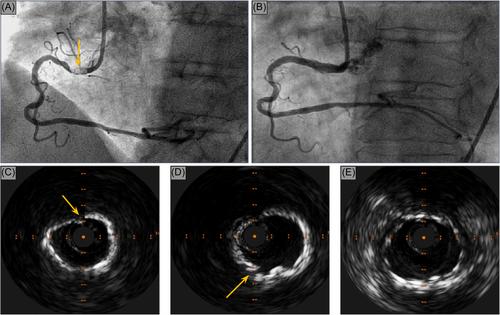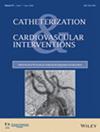Procedural and clinical impact of intracoronary lithotripsy in heavily calcified aorto-ostial coronary lesions
Abstract
Background
Percutaneous coronary intervention of calcified aorto-ostial lesions (AOL) pose unique challenges due to anatomical propensity for recoil, leading to poorer outcomes compared to non-AOL. Although intravascular lithotripsy (IVL) has shown excellent success and safety in heavily calcified plaques, evidence specific to AOL is limited. This study aims to evaluate the efficacy and safety of IVL in AOL versus non-AOL.
Methods
Patients treated with IVL between 2019 and 2023 from an ongoing prospective multicenter registry were eligible for inclusion. Patients were therefore classified in AOL and non-AOL groups, based on anatomical location. The primary technical endpoint was device success, defined as the ability to deliver the IVL catheter and pulses at the target lesion, without angiographic complications. Secondary technical endpoint encompassed procedural success <30%, consisting of device success with residual stenosis <30%, final thrombolysis in myocardial infarction grade 3 flow, and no in-hospital major adverse cardiovascular events (MACE). The primary clinical endpoint was in-hospital MACE, including cardiac death, nonfatal myocardial infarction, or target lesion revascularization.
Results
A total of 321 patients underwent IVL, including 48 with AOL. Device success showed no significant difference between AOL and non-AOL groups (100% vs. 98.2%; p = 0.35). A nonsignificant trend toward worse procedural success with residual stenosis <30% was observed in the AOL arm (AOL 81.3% vs. non-AOL 90.5%, p = 0.06). In-hospital MACE was significantly higher in AOL (4.2% vs. 0.7%, p = 0.048), attributed entirely to cardiac deaths. At 6-month follow-up, the incidence of MACE (AOL 8.3% vs. non-AOL 4.0%, p = 0.19), and cardiac deaths (AOL 4.2% vs non-AOL1.1%, p = 0.11) were comparable between groups.
Conclusion
IVL treatment for heavily calcified AOL demonstrates comparable procedural and 6-month clinical outcomes when compared to non-AOL, despite a higher incidence of in-hospital MACE.


 求助内容:
求助内容: 应助结果提醒方式:
应助结果提醒方式:


